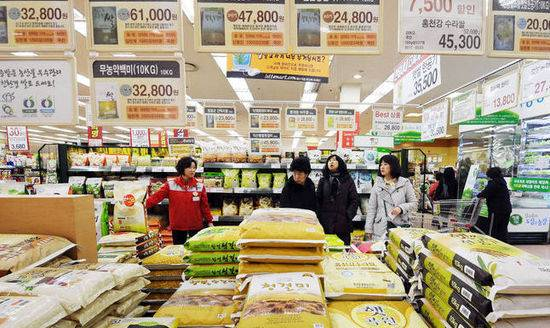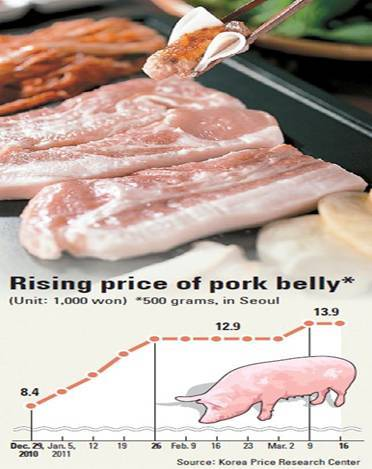
Market Information > 한국 농식품 시장뉴스
한국 농식품 시장뉴스
March 23, 2011
2011.03.23
http://joongangdaily.joins.com/article/view.asp?aid=2933761
Summary: The official signing of the free trade agreement between
Australia-Korea FTA on the way [English, CSY]
[Foreign Biz Groups: 4th in a multipart series]
http://joongangdaily.joins.com/article/view.asp?aid=2933687
Summary: Q. How would the
2. ECONOMIC ISSUES
Local food independence last in OECD [English, CSY]
http://joongangdaily.joins.com/article/view.asp?aid=2933802
Summary:
3. GRAIN & OILSEED ISSUES
Domestic rice has recently shown a bullish trend. [Korean, CSC]
http://www.hankyung.com/news/app/newsview.php?aid=2011032202841

Pork belly price stymies purchases [English, CSY]
Consumers are now seeking alternatives to one of the most popular dining items
http://joongangdaily.joins.com/article/view.asp?aid=2933762

Gov’t screening all food from
Even products that are transshipped will be checked for radiation levels
http://joongangdaily.joins.com/article/view.asp?aid=2933837
Summary:
Japanese fisheries imports in
http://english.donga.com/srv/service.php3?bicode=020000&biid=2011032347388
Summary: With trade between Korea and Japan plummeting following the massive earthquake in northeastern Japan, imports of Japanese agro-fisheries products have plummeted in the wake of the radiation scare due to Japan`s nuclear crisis. News began spreading last weekend that radioactive materials beyond permissible levels were found in agricultural produce from areas near the
The information in this report was compiled by the Agricultural Trade Office (ATO) at the U.S. Embassy in Seoul, South Korea. The press summaries contained herein do NOT reflect USDA, the U.S. Embassy, or other U.S. government agency official policy or view point. U.S. food exporters can learn more about market opportunities in South Korea by reviewing ATO Seoul’s Exporter Guide and other reports available at www.fas.usda.gov by clicking on “attaché reports”.
Agricultural Trade Office, U.S. Embassy - Seoul
Tel: 82-2-6951-6848 Fax: 82-2-720-7921
Email: atoseoul@state.gov